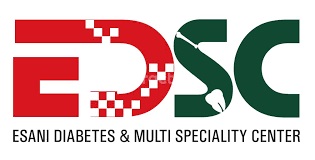
Professional medical service of Cardiology
A cardiologist is a healthcare provider who can treat chest pain, high blood pressure and heart failure, as well as problems with your heart valves, blood vessels and other heart and vascular issues. They can order tests like electrocardiograms, echocardiograms and CTs (computed tomography) to find out what’s wrong. With their diagnosis, they can order medicine, help you start healthier exercise and eating habits or do cardiac catheterization.
A cardiologist will do a physical exam and discuss your symptoms, medical history and family history with you. It’s important to let your cardiologist know if other people in your family have had heart problems because that can increase the chances of you having a heart problem.
- Cardiologists can treat a wide range of heart and vascular problems, including:
- Atherosclerosis. High blood pressure. High cholesterol. Angina (chest pain).
- Heart failure. Heart attack. Blood clots.
- Heart valve problems. Heart abnormalities. Cardiomyopathy. Myocarditis.
- Congenital (from birth) conditions.
- Problems with your aorta (aneurysm, stenosis).
- Heart failure. Heart attack. Blood clots.
- Heart failure. Heart attack. Blood clots.
- Heart valve problems. Heart abnormalities.
- Cardiomyopathy. Myocarditis.
When to see a cardiologist
Your primary care provider may refer you to a cardiologist if you have a problem with your heart or blood vessels that needs extra care. If you’re feeling pain in your chest, dizziness or shortness of breath, you may need to see a cardiologist. Your cardiologist may keep working with you for a long time as they monitor your conditions.


Health Tips & Info
Heart disease is the leading cause of death for both men and women in the United States. Take steps today to lower your risk of heart disease.
To help prevent heart disease, you can:
- Eat healthy
- Get active
- Stay at a healthy weight
- Quit smoking and stay away from secondhand smoke
- Control your cholesterol and blood pressure
- Drink alcohol only in moderation
- Manage stress
Am I at risk for heart disease?
Anyone can get heart disease, but you’re at higher risk if you: Have high cholesterol, high blood pressure, or diabetes Smoke Are overweight or have obesity Don’t get enough physical activity Don’t eat a healthy diet Your age and family history also affect your risk for heart disease. Your risk is higher if: You’re a woman over age 55 You’re a man over age 45 Your father or brother had heart disease before age 55 Your mother or sister had heart disease before age 65 But the good news is there’s a lot you can do to prevent heart disease.
What Is Heart Disease?
When people talk about heart disease, they’re usually talking about coronary heart disease (CHD). It’s also sometimes called coronary artery disease (CAD). This is the most common type of heart disease. When someone has CHD, the coronary arteries (tubes) that take blood to the heart are narrow or blocked. This happens when cholesterol and fatty material, called plaque, build up inside the arteries. Several things can lead to plaque building up inside your arteries, including: Too much cholesterol in the blood High blood pressure Smoking Too much sugar in the blood because of diabetes When plaque blocks an artery, it’s hard for blood to flow to the heart. A blocked artery can cause chest pain or a heart attack.
What is Heart Failure and what causes it?
Experiencing symptoms like rapid or irregular heartbeats, shortness of breath, fatigue, feeling tired, rapid weight gain, frequent urination at night, congested lungs, dizziness etc.? You may consult with the best cardiologist and check it out if it is a symptom of heart failure. Heart failure occurs when the heart is not pumping blood efficiently to keep the body working. Arrhythmias, ventricular fibrillation, coronary artery disease, high blood pressure, diabetes and heart valve problems cause heart failure. It is also an outcome of a poor lifestyle like smoking, an unbalanced diet and no exercise. Treatment for heart failure involves lifestyle changes, medications and surgery. Lifestyle problems like smoking, obesity, cholesterol, poor diet, physical inactivity etc. are major red flags to start monitoring your health. Heart defects at birth, Coronary artery disease, abnormal heart valves, heart muscle disease, severe lung disease, diabetes, substance or alcohol abuse, high blood pressure, kidney disease, infections damage the heart muscle and lead to heart failure. The common symptoms to check out for are discomfort in the chest, fatigue, dizziness, vomiting, nausea, cold sweats, breathing difficulty etc. and require medical intervention.
Best Questions to Ask Your Cardiologist
Some of the questions you can ask cardiologists are: How does stress/anxiety increase the risk of heart complications? Does lifestyle change make a difference in the condition? How does blood pressure reading affect heart health? What is the ideal blood sugar count? Cholesterol level and heart health? Diet to follow? Which symptoms indicate a heart attack? What are the risk factors? Eating habits related to heart health? Any signs to monitor? Will strenuous exercise habits affect heart health?

